His majesty was not only rendered miserable by the constant caprices and violent temper of the countess, but likewise by the virtue and coldness Miss Stuart betrayed since her return from Oxford. The monarch was sorely troubled to account for her bearing, and attributing it to jealousy, sought to soothe her supposed uneasiness by increasing his chivalrous attentions. Her change of behaviour, however, proceeded from another cause. The fair Stuart, though childlike in manner, was shrewd at heart; and was moreover guided invariably by her mother, a lady who reaped wisdom from familiarity with courts. Therefore the maid of honour, seeing she had given the world occasion to think she had lost her virtue, declared she was ready to "marry any gentleman of fifteen hundred a year that would have her in honour."This determination she was obliged to keep-secret from the king, lest his anger should fall upon such as sought her, and so interfere with her matrimonial prospects. Now with such intentions in her mind she pondered well on an event which had happened to her, such as no woman who has had like experience ever forgets; namely, that amongst the many who professed to love her, one had proposed to marry her. This was Charles Stuart, fourth Duke of Richmond, a man possessed of neither physical gifts nor mental abilities; who was, moreover, a widower, and a sot.
However, the position which her union with him would ensure was all she could desire, and he renewing his suit at this time, she consequently consented to marry him. Now though it was probable she could keep her design from knowledge of her royal lover, it was scarcely possible she could hide it from observation of his mistress. And the latter, knowing the extent to which fair Frances Stuart shared his majesty's heart, and being likewise aware of the coldness with which his protestations were by her received, scorned the king and detested the maid. Lady Castlemaine therefore resolved to use her knowledge of Miss Stuart's contemplated marriage, for purpose of enraging the jealousy of the one, and destroying the influence of the other.
In order to accomplish such desirable ends she quietly awaited her opportunity. This came in due time.
It happened one evening when his majesty had been visiting Frances Stuart in her apartments, and had returned to his own in a condition of ill-humour and disappointment, the countess, who had been some days out of favour, suddenly presented herself before him, and in a bantering tone, accompanied by ironical smiles, addressed him.
"I hope," said she, "I may be allowed to pay you my homage, although the angelic Stuart has forbidden you to see me at my own house. I will not make use of reproaches and expostulations which would disgrace myself; still less will I endeavour to excuse frailties which nothing can justify, since your constancy for me deprives me of all defence, considering I am the only person you have honoured with your tenderness, who has made herself unworthy of it by ill-conduct. I come now, therefore, with no other intent than to comfort and condole with you upon the affliction and grief into which the coldness or new-fashioned chastity of the inhuman Stuart has reduced your majesty."Having delivered herself of this speech she laughed loud and heartily, as if vastly amused at the tenour of her words; and then before the impatient monarch had time to reply, continued in the same tone, with quickening breath and flashing eyes, "Be not offended that I take the liberty of laughing at the gross manner in which you are imposed upon; I cannot bear to see that such particular affection should make you the jest of your own court, and that you should be ridiculed with such impunity. I know that the affected Stuart has sent you away under pretence of some indisposition, or perhaps some scruple of conscience; and I come to acquaint you that the Duke of Richmond will soon be with her, if he is not there already. I do not desire you to believe what I say, since it might be suggested either through resentment or envy. Only follow me to her apartment, either that, no longer trusting calumny and malice you may honour her with a just preference, if I accuse her falsely; or, if my information be true, you may no longer be the dupe of a pretended prude, who makes you act so unbecoming and ridiculous a part."The king, overwhelmed with astonishment, was irresolute in action; but Lady Castlemaine, determined on not being deprived of her anticipated triumph, took him by the hand and forcibly pulled him towards Miss Stuart's apartments. The maid of honour's servants, surprised at his majesty's return, were unable to warn their mistress without his knowledge; whilst one of them, in pay of the countess, found means of secretly intimating to her that the Duke of Richmond was already in Miss Stuart's chamber. Lady Castlemaine, having with an air of exultation led the king down the gallery from his apartments to the threshold of Miss Stuart's door, made him a low courtesy savouring more of irony than homage, bade him good-night, and with a subtle smile promptly retired.















